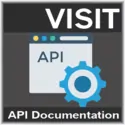GilesSmith
New Member
- Joined
- Jun 2, 2012
- Messages
- 1,564
- Reaction score
- 34
Please scroll to the bottom of this post for an attached short example showing how to utilize useonce and deathhandling tags to merge multiple XML's into a single unified file that handles death handling fully.
See link below for a user-created profile template using Trinity tags for advanced profile creation with death-handling, randomized pathing etc. all in a single XML:
http://www.thebuddyforum.com/demonbuddy-forum/plugins/giles-plugins/75739-guide-writing-multipath-profiles-new-trinity-tags.html
New Profile (XML) Stuff:
Trinity v1.6 is here, and with it are a number of new features for profile makers to take advantage of. Below is the full list of custom XML tags that can be used in profiles for anyone running Trinity. First, the list of tags;
<TrinityTownRun />
<TrinityLog output="test" />
<TrinityMoveTo />
<TrinityMoveToSNO snoid="xxxx" />
<TrinityInteract snoid="xxxx" />
<TrinityIf> </TrinityIf>
<TrinityIfSNOInRange snoid="xxxxx" range="yy"> </TrinityIfSNOInRange>
<TrinityUseOnce id="12345"> </TrinityUseOnce>
<TrinityUseStop id="xxxx" />
<TrinityUseReset id="xxxx" />
<TrinityLoadProfile file="12345.xml" />
<TrinityRandomRoll id="1234" min="1" max="10" />
<TrinityIfRandom id="1234" result="1"> </TrinityIfRandom
<TrinityHandleDeaths max="5" />
And now for details on them all and some sample usage;
<TrinityTownRun />
Tells Trinity to town-run the moment it has finished dealing with any current targets.
Example:
<TrinityLog output="test" />
Sends a log output to the DemonBuddy window and continues the profile - useful for sending messages to the user or debugging complex profiles.
An optional parameter 'level="diagnostic"' allows you to only log at diagnostics level.
Examples:
<TrinityMoveTo />
Mimics the DemonBuddy MoveTo Tag in almost every way (supports all of it's parameters - pathprecision, x, y, z, name etc.) except WITH NO PATHFINDING OR NAV-SERVER HITS. It will just try to straightline between two points. Can help in problematic areas where you know your waypoints are correct. Use wisely, and don't abuse pathprecision with it!
TrinityMoveTo can skip ahead waypoints if you have already walked through/near those waypoints while fighting targets, to help speed runs up.
NOTE: The TrinityMoveTo "Skip Ahead" feature will NOT run if you have backtracking enabled - as the two features are complete opposites of eachother!
Examples:
NOTE: You can prevent a TrinityMoveTo from being allowed to be "skipped", by adding an optional parameter; noskip="true", for example;
<TrinityMoveToSNO snoid="xxxx" />
Similar to TrinityMoveTo, but supporting only three parameters: snoid (REQUIRED!), pathPrecision (optional), name (optional).
TrinityMoveToSNO will try to find the first instance of the SNOID you give in Diablo 3 memory, get it's location, and move towards it.
IT SUPPORTS MOVING OBJECTS.
Just like TrinityMoveTo, it has no path-finding - it tries to straight-line walk, with no nav-server hits.
Example:
<TrinityInteract snoid="xxxx" />
This attempts to interact with the object as long as it is found in memory - REGARDLESS of range, position, or anything - will attempt no DB-side navigation.
This is just a pure, straight out interaction, and only attempts the interaction once, regardless of success or failure. (you can spam the tag multiple times to attempt multiple interacts in a row if you need/want).
Example:
If you want a really reliable way to enter orange portals/doorways, use TrinityInteract in a While loop that repeats until the world ID changes from whichever is the origin (leaving from) world ID, for example;
<TrinityIf> </TrinityIf>
This is identical in all ways to DemonBuddy's built in <If> tag. It supports all parameters and options. But people should find it more reliable, especially when nested. A sample use would be;
To check if you are already in town or not, at the start of a profile - and if you aren't, to teleport to town first.
<TrinityIfSNOInRange snoid="xxxxx" range="yy"> </TrinityIfSNOInRange>
This works like the default "If" tag and can have child nodes. It allows you to check if a particular SNO ID is within a specified range before carrying out actions.
Child-nodes can be any tag type - be they Trinity tags or any other tags (provided by DB or other plugins), and can be nested.
An optional parameter 'type="reverse"' allows you to only process the contents if an SNO is *NOT* within range (or not present at all).
Examples:
<TrinityUseOnce id="12345"> </TrinityUseOnce>
This is a container tag (and can have unlimited child nodes and nested child nodes). Child-nodes can be any tag type - be they Trinity tags or any other tags (provided by DB or other plugins), and can be nested.
Give it any ID you like (MUST be a number/integer!) - from 1 to 9999999. If Trinity encounters this element, it will remember the ID - and will NEVER process that ID again until the bot leaves the game and returns (unless you use the optional "max" parameter, see below).
You can use this to ensure certain parts of your profile do not get re-run after a death, or for more complicated uses where you want something to be done once only, but have multiple opportunities, eg;
^^ In the above example, once id 666 has been "processed", it won't get processed again for the rest of the run. So if the "magic lever" was found in the first if check, it will have been used there - if it ALSO appeared in the 2nd if check, it WON'T be used - since useonce has already been flagged as done for id 666. Also, if you die and a profile manager restarts the profile, it WON'T be used on your next run-through.
The optional parameter 'max="2"' - set how many times this ID can be re-used during this session. You can now allow an id to be re-used multiple times before being disabled.
A 2nd optional parameter is 'disableprevious="true"' - if this parameter is present when the useonce tag is reached *AND* if this useonce id hasn't been hit before, then *ALL* previously hit useonce id's will be instantly set to their max limits so they will never run again.
Example;
The above example would first tell Trinity that it is handling deaths, and that the max deaths allowed until exiting and restarting is 5.
Now for example, say the bot is running cursed towers, and dies - Trinity will restart the profile from the beginning. The "UseOnce" max of 2 tag will allow cursed towers to run a second time.
The bot dies again, Trinity restarts the current profile - but THIS time - the useonce for id 20 (the cursed towers area) has already been hit twice, so it is skipped - and the bot now moves onto the Battlefields area.
Now should the bot die again in the Battlefields - the max death count of 3, set by the very first tag, will trigger Trinity to exit the game, and start the whole process again.
This allows profiles to only ever be one single, self-contained XML file.
Don't forget to use the "LeaveGame" tag, to tell Db to leave the game at the end and restart the profile for you!
<TrinityUseStop id="12345" />
TrinityUseStop will prevent the specified "UseOnce" id being used again for the rest of the run - that ID is "completely disabled" until your game leaves and a new game started. You can use it within, but at the end of, a <UseOnce> tag as a way of disabling a UseOnce tag *ONLY* when that UseOnce tag has been completed, as one possible example usage.
Example line;
<TrinityUseReset id="12345" />
TrinityUseReset allows you to RESET a UseOnce ID (so Trinity will treat that UseOnce ID as if it has never been hit before).
It will re-enable any ID completely ready for use again (even one that use been "UseStopped").
You could combine a "UseStop" at the start of a section, with a "UseOnce" at the end of a section - so that a later UseOnce further down a profile is only run when the UseReset is reached (ie when a previous section has been FULLY completed).
Get creative with the tags, you can do a lot of clever things!
<TrinityLoadProfile file="12345.xml" />
This allows you to load a new profile up. Note that you can seperate multiple filenames with an exclamation mark, and a random profile will be selected.
NOTE: the .xml MUST be in the same folder as the currently loaded profile.
An optional parameter, 'exit="true"', can be given to tell Trinity to also exit the game after loading the profile, to allow a new game start.
Examples;
Would cause one of those three XML's to be picked at random. You can of course just list a single .xml file for it to load.
Would cause act4.xml to be loaded, and the current game to be exited so that a new game can start.
An additional optional parameter, nodelay="true", removes the forced-3 second wait after loading the profile, to help speed runs up for when the new profile is continuing from the same map-zone, for example;
<TrinityRandomRoll id="1234" min="1" max="10" />
Generates a random value between the min and max (the given values are INCLUSIVE - so min 1 max 10 allows 1-10 to roll), and stores it in the given ID.
If giving the same ID, it will simply store a new random roll in the given ID.
The value is stored until the bot is stopped. (leaving/joining a game does not clear the value - but you can reset the value by running the command again on the same ID).
Example;
<TrinityIfRandom id="1234" result="1"> </TrinityIfRandom
This is a container tag - it can contain child-nodes of any tag type - be they Trinity tags or any other tags (provided by DB or other plugins), and can be nested.
The code inserted into the ifrandom will ONLY be run, if the random value of the specified id, matches the result.
Example usage;
The above will pick a random number between 1 and 2 - and output a different log entry depending on what value was rolled.
The id can be checked unlimited times anywhere in the profile or any other profiles loaded afterwards, and can be re-assigned/re-rolled. It is only reset to 0 when DemonBuddy is stopped..
<TrinityHandleDeaths max="5" />
Tells Trinity to handle total deaths during this run, and to restart the profile on death, and exit the game and restart the profile if the max death count is reached.
Max death count must be a minimum of 1 for Trinity to handle deaths.
An optional parameter 'reset="true"' will force Trinity to reset the current counted deaths this run to 0 (as if the player had never died yet).
Examples;
NOTE: If using Trinity death handling, you should disable DB death handling (set to "Ignore" in settings tab of DB), and disable any plugins/profile managers that handle deaths/profiles.
DO NOT use "reset=true" for normal use. It will *RESET* your death counts back to 0 when run. For advanced/complex use only!
Random Tips/Code-Chunks:
A reliable way to portal *BACK* to town from any map is:
Where 161472 is the world ID of the town in your current act (sample above is the town world ID in act 2).
A reliable way to enter any orange portal/doorway is;
Where the world ID in the While check is the world ID you are trying to *LEAVE* (not the world ID you are trying to enter), and the snoid in the TrinityInteract tag is the SNOID of the orange portal/doorway (many of them are 176001).
The next chunk of code would check if the stash in Act 3 is within 50 foot. If so it will move to a location a little south-west of the stash, then try to move to the SNO ID itself, and then interact with the SNO.
REMEMBER: There is no path-finding in any TrinityMoveTo tags - you can mix in standard DemonBuddy moveto tags if you want to utilize demonbuddy path-finding and nav-server stuff!
The following gives an example of the TrinityUseOnce stuff. Only the first two log lines will be shown. The 2nd two will never be seen. The first two won't be seen again until DemonBuddy exits the game and starts a new run.
See link below for a user-created profile template using Trinity tags for advanced profile creation with death-handling, randomized pathing etc. all in a single XML:
http://www.thebuddyforum.com/demonbuddy-forum/plugins/giles-plugins/75739-guide-writing-multipath-profiles-new-trinity-tags.html
New Profile (XML) Stuff:
Trinity v1.6 is here, and with it are a number of new features for profile makers to take advantage of. Below is the full list of custom XML tags that can be used in profiles for anyone running Trinity. First, the list of tags;
<TrinityTownRun />
<TrinityLog output="test" />
<TrinityMoveTo />
<TrinityMoveToSNO snoid="xxxx" />
<TrinityInteract snoid="xxxx" />
<TrinityIf> </TrinityIf>
<TrinityIfSNOInRange snoid="xxxxx" range="yy"> </TrinityIfSNOInRange>
<TrinityUseOnce id="12345"> </TrinityUseOnce>
<TrinityUseStop id="xxxx" />
<TrinityUseReset id="xxxx" />
<TrinityLoadProfile file="12345.xml" />
<TrinityRandomRoll id="1234" min="1" max="10" />
<TrinityIfRandom id="1234" result="1"> </TrinityIfRandom
<TrinityHandleDeaths max="5" />
And now for details on them all and some sample usage;
<TrinityTownRun />
Tells Trinity to town-run the moment it has finished dealing with any current targets.
Example:
Code:
<TrinityTownRun questId="1" /><TrinityLog output="test" />
Sends a log output to the DemonBuddy window and continues the profile - useful for sending messages to the user or debugging complex profiles.
An optional parameter 'level="diagnostic"' allows you to only log at diagnostics level.
Examples:
Code:
<TrinityLog questId="1" output="Now in town, entering portal" />
<TrinityLog questId="1" level="diagnostic" output="Profile debug: We are inside the nested loop successfully!" /><TrinityMoveTo />
Mimics the DemonBuddy MoveTo Tag in almost every way (supports all of it's parameters - pathprecision, x, y, z, name etc.) except WITH NO PATHFINDING OR NAV-SERVER HITS. It will just try to straightline between two points. Can help in problematic areas where you know your waypoints are correct. Use wisely, and don't abuse pathprecision with it!
TrinityMoveTo can skip ahead waypoints if you have already walked through/near those waypoints while fighting targets, to help speed runs up.
NOTE: The TrinityMoveTo "Skip Ahead" feature will NOT run if you have backtracking enabled - as the two features are complete opposites of eachother!
Examples:
Code:
<TrinityMoveTo questId="1" x="2248.932" y="1058.559" z="0.2" pathPrecision="1" />NOTE: You can prevent a TrinityMoveTo from being allowed to be "skipped", by adding an optional parameter; noskip="true", for example;
Code:
<TrinityMoveTo questId="1" noskip="true" x="2248.932" y="1058.559" z="0.2" pathPrecision="1" /><TrinityMoveToSNO snoid="xxxx" />
Similar to TrinityMoveTo, but supporting only three parameters: snoid (REQUIRED!), pathPrecision (optional), name (optional).
TrinityMoveToSNO will try to find the first instance of the SNOID you give in Diablo 3 memory, get it's location, and move towards it.
IT SUPPORTS MOVING OBJECTS.
Just like TrinityMoveTo, it has no path-finding - it tries to straight-line walk, with no nav-server hits.
Example:
Code:
<TrinityMoveToSNO questId="1" snoid="130400" pathPrecision="8" /><TrinityInteract snoid="xxxx" />
This attempts to interact with the object as long as it is found in memory - REGARDLESS of range, position, or anything - will attempt no DB-side navigation.
This is just a pure, straight out interaction, and only attempts the interaction once, regardless of success or failure. (you can spam the tag multiple times to attempt multiple interacts in a row if you need/want).
Example:
Code:
<TrinityInteract questID="1" snoid="130400" />If you want a really reliable way to enter orange portals/doorways, use TrinityInteract in a While loop that repeats until the world ID changes from whichever is the origin (leaving from) world ID, for example;
Code:
<!-- Keep trying to enter the portal until successful -->
<While questId="1" condition="Zeta.ZetaDia.CurrentWorldId==172909">
<TrinityInteract questId="1" snoid="176001" />
<WaitTimer questId="1" WaitTime="1000" />
</While><TrinityIf> </TrinityIf>
This is identical in all ways to DemonBuddy's built in <If> tag. It supports all parameters and options. But people should find it more reliable, especially when nested. A sample use would be;
Code:
<!-- If not in town, portal to town -->
<TrinityIf questId="1" condition="not Zeta.ZetaDia.CurrentWorldId==172909" >
<UseTownPortal questId="1" />
</TrinityIf><TrinityIfSNOInRange snoid="xxxxx" range="yy"> </TrinityIfSNOInRange>
This works like the default "If" tag and can have child nodes. It allows you to check if a particular SNO ID is within a specified range before carrying out actions.
Child-nodes can be any tag type - be they Trinity tags or any other tags (provided by DB or other plugins), and can be nested.
An optional parameter 'type="reverse"' allows you to only process the contents if an SNO is *NOT* within range (or not present at all).
Examples:
Code:
<TrinityIfSNOInRange snoid="130400" range="20">
<TrinityLog questId="1" output="Player stash is within range, do stuff!" />
</TrinityIfSNOInRange>
<TrinityIfSNOInRange snoid="208620" range="20" type="reverse">
<TrinityLog questId="1" output="The Priest NPC is not found within range... LETS PARTY!" />
</TrinityIfSNOInRange><TrinityUseOnce id="12345"> </TrinityUseOnce>
This is a container tag (and can have unlimited child nodes and nested child nodes). Child-nodes can be any tag type - be they Trinity tags or any other tags (provided by DB or other plugins), and can be nested.
Give it any ID you like (MUST be a number/integer!) - from 1 to 9999999. If Trinity encounters this element, it will remember the ID - and will NEVER process that ID again until the bot leaves the game and returns (unless you use the optional "max" parameter, see below).
You can use this to ensure certain parts of your profile do not get re-run after a death, or for more complicated uses where you want something to be done once only, but have multiple opportunities, eg;
Code:
<TrinityIfSNOInRange snoid="130400" range="15">
<TrinityUseOnce id="666">
<TrinityLog questId="1" output="Hey, we found the magic lever, going to interact with it!" />
<TrinityInteract questID="1" snoid="52685" />
</TrinityUseOnce>
</TrinityIfSNOInRange>
<move stuff>
<more profile stuff>
<etc.>
<TrinityIfSNOInRange snoid="130400" range="15">
<TrinityUseOnce id="666">
<TrinityLog questId="1" output="We definitely haven't used this yet this run, so using it now!" />
<TrinityInteract questID="1" snoid="52685" />
</TrinityUseOnce>
</TrinityIfSNOInRange>The optional parameter 'max="2"' - set how many times this ID can be re-used during this session. You can now allow an id to be re-used multiple times before being disabled.
A 2nd optional parameter is 'disableprevious="true"' - if this parameter is present when the useonce tag is reached *AND* if this useonce id hasn't been hit before, then *ALL* previously hit useonce id's will be instantly set to their max limits so they will never run again.
Example;
Code:
<TrinityMaxDeaths questId="1" max="3" />
<TrinityUseOnce questId="1" id="20" max="2">
<TrinityLog questId="1" output="Now Running A3 Cursed Towers" />
<!-- insert cursed towers profile stuff -->
</TrinityUseOnce>
<TrinityUseOnce questId="1" id="21" max="2" disableprevious="true">
<TrinityLog questId="1" output="Now Running A3 Battlefields" />
<!-- insert battlefields profile stuff -->
</TrinityUseOnce>
<LeaveGame reason="Run is done!" />The above example would first tell Trinity that it is handling deaths, and that the max deaths allowed until exiting and restarting is 5.
Now for example, say the bot is running cursed towers, and dies - Trinity will restart the profile from the beginning. The "UseOnce" max of 2 tag will allow cursed towers to run a second time.
The bot dies again, Trinity restarts the current profile - but THIS time - the useonce for id 20 (the cursed towers area) has already been hit twice, so it is skipped - and the bot now moves onto the Battlefields area.
Now should the bot die again in the Battlefields - the max death count of 3, set by the very first tag, will trigger Trinity to exit the game, and start the whole process again.
This allows profiles to only ever be one single, self-contained XML file.
Don't forget to use the "LeaveGame" tag, to tell Db to leave the game at the end and restart the profile for you!
<TrinityUseStop id="12345" />
TrinityUseStop will prevent the specified "UseOnce" id being used again for the rest of the run - that ID is "completely disabled" until your game leaves and a new game started. You can use it within, but at the end of, a <UseOnce> tag as a way of disabling a UseOnce tag *ONLY* when that UseOnce tag has been completed, as one possible example usage.
Example line;
Code:
<TrinityUseStop questId="1" id="666" /><TrinityUseReset id="12345" />
TrinityUseReset allows you to RESET a UseOnce ID (so Trinity will treat that UseOnce ID as if it has never been hit before).
It will re-enable any ID completely ready for use again (even one that use been "UseStopped").
You could combine a "UseStop" at the start of a section, with a "UseOnce" at the end of a section - so that a later UseOnce further down a profile is only run when the UseReset is reached (ie when a previous section has been FULLY completed).
Get creative with the tags, you can do a lot of clever things!
<TrinityLoadProfile file="12345.xml" />
This allows you to load a new profile up. Note that you can seperate multiple filenames with an exclamation mark, and a random profile will be selected.
NOTE: the .xml MUST be in the same folder as the currently loaded profile.
An optional parameter, 'exit="true"', can be given to tell Trinity to also exit the game after loading the profile, to allow a new game start.
Examples;
Code:
<TrinityLoadProfile file="12345.xml!56789.xml!abcdef.xml" />
Code:
<TrinityLoadProfile file="act4.xml" exit="true" />An additional optional parameter, nodelay="true", removes the forced-3 second wait after loading the profile, to help speed runs up for when the new profile is continuing from the same map-zone, for example;
Code:
<TrinityLoadProfile file="12345.xml" nodelay="true" /><TrinityRandomRoll id="1234" min="1" max="10" />
Generates a random value between the min and max (the given values are INCLUSIVE - so min 1 max 10 allows 1-10 to roll), and stores it in the given ID.
If giving the same ID, it will simply store a new random roll in the given ID.
The value is stored until the bot is stopped. (leaving/joining a game does not clear the value - but you can reset the value by running the command again on the same ID).
Example;
Code:
<TrinityRandomRoll questId="1" id="1" min="1" max="10" /><TrinityIfRandom id="1234" result="1"> </TrinityIfRandom
This is a container tag - it can contain child-nodes of any tag type - be they Trinity tags or any other tags (provided by DB or other plugins), and can be nested.
The code inserted into the ifrandom will ONLY be run, if the random value of the specified id, matches the result.
Example usage;
Code:
<TrinityRandomRoll questId="1" id="69" min="1" max="2" />
<TrinityIfRandom questId="1" id="69" result="1">
<TrinityLog questId="1" output="We rolled a 1! So we're going to take path A!" />
</TrinityIfRandom>
<TrinityIfRandom questId="1" id="69" result="2">
<TrinityLog questId="1" output="We rolled a 2! So we're going to take path B!" />
</TrinityIfRandom>The id can be checked unlimited times anywhere in the profile or any other profiles loaded afterwards, and can be re-assigned/re-rolled. It is only reset to 0 when DemonBuddy is stopped..
<TrinityHandleDeaths max="5" />
Tells Trinity to handle total deaths during this run, and to restart the profile on death, and exit the game and restart the profile if the max death count is reached.
Max death count must be a minimum of 1 for Trinity to handle deaths.
An optional parameter 'reset="true"' will force Trinity to reset the current counted deaths this run to 0 (as if the player had never died yet).
Examples;
Code:
<TrinityMaxDeaths questId="1" max="5" />
<TrinityMaxDeaths questId="1" max="2" reset="true" />DO NOT use "reset=true" for normal use. It will *RESET* your death counts back to 0 when run. For advanced/complex use only!
Random Tips/Code-Chunks:
A reliable way to portal *BACK* to town from any map is:
Code:
<!-- while our world ID is *NOT* the current act's town ID, keep trying to portal and wait -->
<While questId="1" condition="Zeta.ZetaDia.CurrentWorldId != 161472">
<UseTownPortal questId="1" />
<WaitTimer questId="1" WaitTime="1000" />
</While>A reliable way to enter any orange portal/doorway is;
Code:
<!-- Keep trying to enter the portal until successful -->
<While questId="1" condition="Zeta.ZetaDia.CurrentWorldId==172909">
<TrinityInteract questId="1" snoid="176001" />
<WaitTimer questId="1" WaitTime="1000" />
</While>The next chunk of code would check if the stash in Act 3 is within 50 foot. If so it will move to a location a little south-west of the stash, then try to move to the SNO ID itself, and then interact with the SNO.
REMEMBER: There is no path-finding in any TrinityMoveTo tags - you can mix in standard DemonBuddy moveto tags if you want to utilize demonbuddy path-finding and nav-server stuff!
Code:
<TrinityIfSNOInRange questId="1" snoid="130400" range="50">
<TrinityLog questId="1" output="Stash is nearby, now moving within range of stash..." />
<TrinityMoveTo questId="1" x="412.8796" y="396.349" z="0.5461263" pathPrecision="8" />
<TrinityMoveToSNO questId="1" snoid="130400" pathPrecision="8" />
<TrinityIfSNOInRange questId="1" snoid="130400" range="8">
<TrinityLog questId="1" output="We're next to the stash, now opening!" />
<TrinityInteract questId="1" snoid="130400" />
</TrinityIfSNOInRange>
</TrinityIfSNOInRange>The following gives an example of the TrinityUseOnce stuff. Only the first two log lines will be shown. The 2nd two will never be seen. The first two won't be seen again until DemonBuddy exits the game and starts a new run.
Code:
<TrinityUseOnce questId="1" id="54321">
<TrinityLog questId="1" output="This is 54321 unique output!" />
</TrinityUseOnce>
<TrinityUseOnce questId="1" id="12345">
<TrinityLog questId="1" output="And this is 12345 unique output!" />
</TrinityUseOnce>
<TrinityUseOnce questId="1" id="12345">
<TrinityLog questId="1" output="Awww, I will never get to be seen!" />
</TrinityUseOnce>
<TrinityUseOnce questId="1" id="54321">
<TrinityLog questId="1" output="Nor will I!" />
</TrinityUseOnce>Attachments
Last edited:






